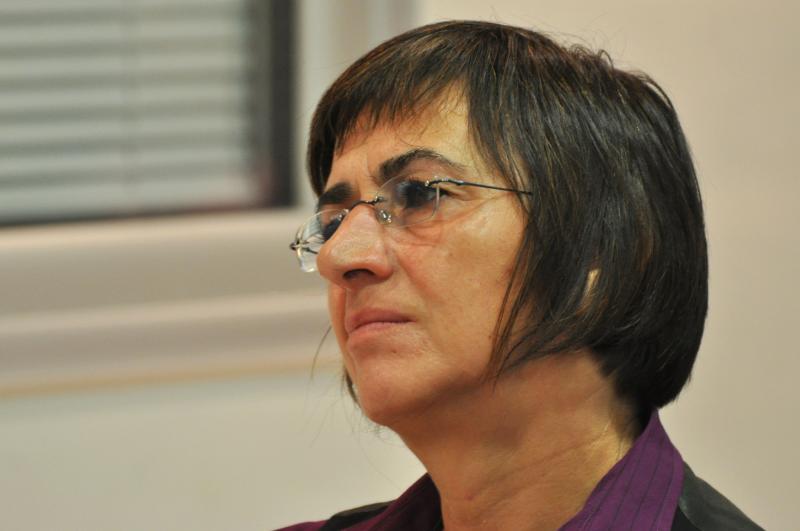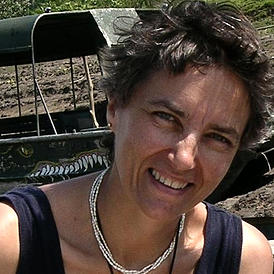Bridget Anderson (UK)
Bridget Anderson is Professor of Migration and Citizenship and Research Director at COMPAS. She has a DPhil in Sociology and previous training in Philosophy and Modern Languages. She has explored the tension between labour market flexibilities and citizenship rights, and pioneered an understanding of the functions of immigration in key labour market sectors. She is the author of Us and Them? The Dangerous Politics of Immigration Controls (Oxford University Press, 2013) and Doing the Dirty Work? The Global Politics of Domestic Labour (Zed Books, 2000). She coedited Who Needs Migrant Workers? Labour Shortages, Immigration and Public Policy with Martin Ruhs (Oxford University Press, 2010 and 2012), The Social, Political and Historical Contours of Deportation with Matthew Gibney and Emanuela Paoletti (Springer, 2013), and Migration and Care Labour: Theory, Policy and Politics with Isabel Shutes (Palgrave Macmillan, 2014). Bridget Anderson has worked closely with migrants’ organisations, trades unions and legal practitioners at local, national and international level.


Laia Serra (Estado español)
Criminal lawyer, works in human rights, non-discrimination, hate crimes and gender violence. Member of the Defence Commission of the Lawyers Association of Barcelona, of Women Lawyers and of the Catalan Association for the Defence of Human Rights, which is part of the Catalan Coordination for the Prevention and Complaint of Torture, and regularly collaborates with different feminist collectives. She has advised the Observatory against Homophobia since 2007 and the Association for Assistance to Sexually Assaulted Women (AADAS) since 2014. She has intervened in political advocacy campaigns such as the eradication of rubber bullets in Catalonia, the non-introduction of guns Taser in the armament of the Mossos d'Esquadra, the access to assisted reproduction of all women, and the change of health care model for transgender people. She has intervened in several court cases related to the limits on freedom of expression, the criminalization of protest and gender violence through social networks. Collaborates in the drafting of the Regulations for the Deployment of the Law against Catalan LGBTI phobia and in legal opinion articles with El Diario.es, La Directa, El Punt Avui and Pikara Magazine.
Stasa Zajovic (Montenegro)
Feminist activist, pacifist and member of the Montenegrin LGBT Movement, co-founder and coordinator of the organization Women in Black of Belgrade created in 1991 at the beginning of the war in Yugoslavia. In Belgrade, during the war in the former Yugoslavia, she was one of the activists who led the silent vigils of Women in Black that took place regularly every week from 1991 to 1997 as a nonviolent protest against the war; the politics of the Serbian regime; nationalism; militarism and all forms of hate, discrimination and violence. She is one of the organizers of the Women's Court, Sarajevo, in May 2015.


Patricia Orejudo (Estado español)
Professor of Private International Law University of the Complutense University of Madrid. Lawyer specialized in Human Rights. PHD in Law. She has taught undergraduate and postgraduate courses, in many other centres in Spain, Europe and Latin America. Member of the state campaign for the closure of Detention Centres for Migrants and the Sol Legal Commission. She has worked in Women's Link Worldwide, a non-profit organization that uses the power of the law to promote and defend the rights of women and girls, as a senior lawyer, and has collaborated with the Spanish Commission for Refugee Aid (CEAR). Investigate issues mainly related to migration from a gender perspective.
Marina Forti (Italia)
Journalist based in Rome. She worked with the daily newspaper “il manifesto” for 30 years, mostly as a Foreign Correspondent and later Foreign Editor. She traveled in Iran, South Asia and South East Asia. She started the column “TerraTerra” (“Earth to Earth”) on environmental justice and the conflicts for the natural resources. Her book La signora di Narmada (Feltrinelli 2004) was awarded the Elsa Morante Prize for Communication. Her latest book is “Il cuore di tenebra dell'India” (Bruno Mondadori 2012). She contributes regularly to Internazionale.it.


Teresa Almeida Cravo (Portugal)
Assistant Professor in International Relations at the Faculty of Economics of the University of Coimbra and a Researcher at the Centre for Social Studies. She is currently co-coordinator of the PhD Programme Democracy in the XXIst Century and coordinator of the Master’s degree in International Relations – Peace, Security and Development Studies, both at the University of Coimbra. She holds a PhD from the Department of Politics and International Studies of the University of Cambridge. In the last years, Teresa has been a Visiting Fellow at the University of Westminster, in the UK, at the University of Monash, in Australia, and a Predoctoral Fellow and later an Associate at the Belfer Center for Science and International Affairs, at the John F. Kennedy School of Government at Harvard University. Her research interests include peace and conflict, security and development, interventionism, and foreign policy, particularly within the Lusophone context.

Leave a Reply
Want to join the discussion?Feel free to contribute!